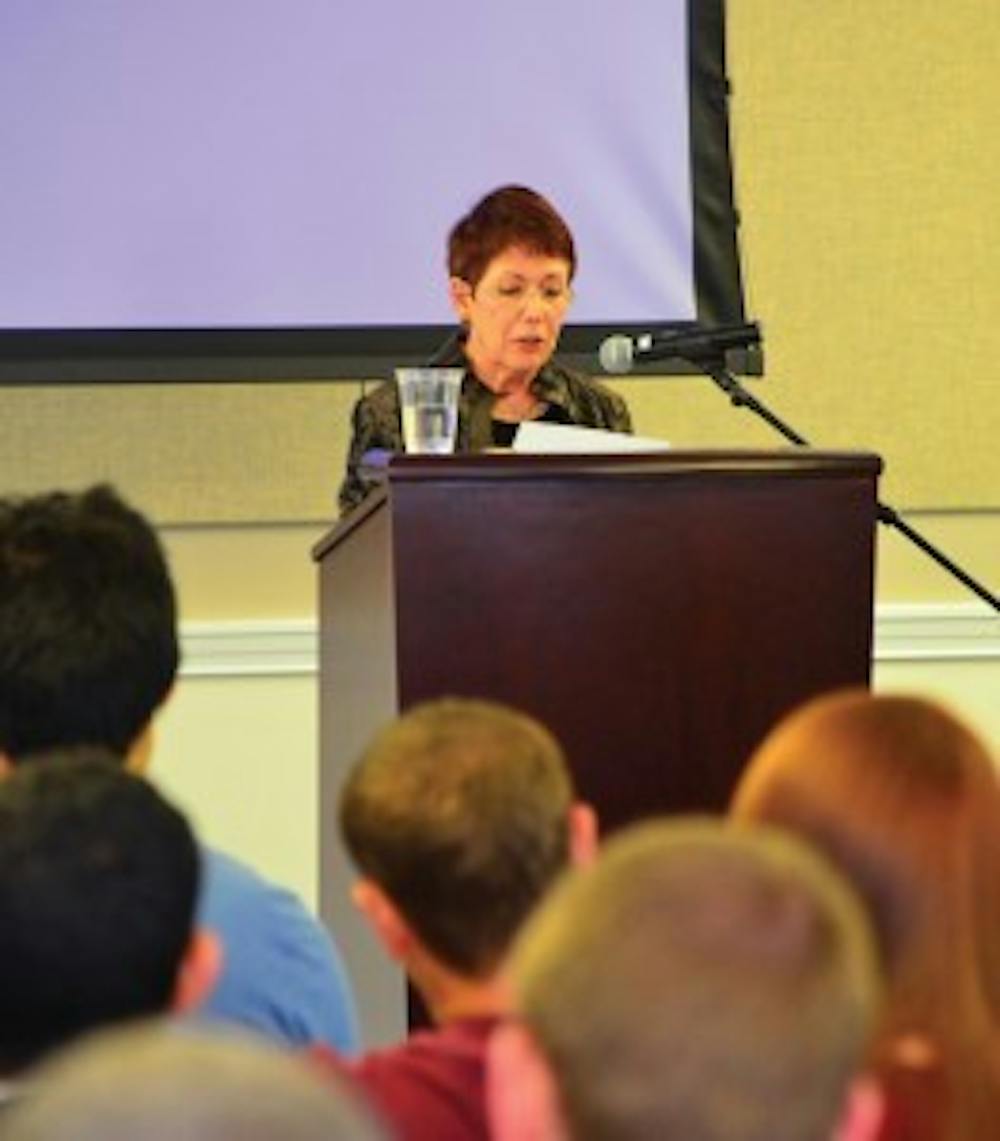The Jewish Studies Department hosted its first annual Richard J. Gunst Colloquium yesterday afternoon in the South Meeting Room of Newcomb.
The inaugural symposium featured talks by three professors who discussed the events of 1948 and their impact on Jews and Palestinians.
History Prof. Alon Confino, who organized the colloquium, said he believed 1948 had a "foundational past" which makes the year integral to understanding the history of Palestine, Israel in the twentieth century, and modern politics.
"We are very interested in how people understood and interpreted what happened to give it more of a human touch," Confino said.
During the opening lecture, Anita Shapira, a Jewish History Prof. at Tel Aviv University, referenced autobiographical Jewish diary entries and letters written between Nov. 29, 1947 and July 1948, during the Israeli war for statehood.
"This is the people speaking at eye level," Shapira said. "I do not attempt [to reconstruct] the events, or to understand the overall picture, but rather to examine how the people at that time felt, understood, and internalized what was happening. This is history from the bottom up."
Shapira used the Israeli personal accounts to question the collective characterizations of Israelis which have dominated the historical narrative of the emergence of Israel.
She said each Israeli kept personal accounts of the events for different reasons - to express self-realization, desire, fear, traumatic experience, longing for comfort or grief.
Asst. History Prof. James Loeffler said Shapira's analysis is useful because it enables people to get closer "to the authentic experience of people [and] reveals the humanism inside the war."
Loeffler also said Shapira's analysis adds complexity to the narrative of 1948, allowing historians to see the "raw materials of history" before they have been molded to fit into a broader historical context.
"We need to tell these stories from the perspective of Jews and Arabs, in order to get to the point where we can recognize the other forces shaping these individuals," Loeffler said.
Salim Tamari, a visiting professor from Georgetown University's Center for Contemporary Arab Studies, lectured on the experiences of Palestinians during 1948, which supplemented the Israeli perspective provided during Shapira's talk.
Like Shapira, Tamari cited personal accounts to deconstruct traditional historical accounts of 1948, which portray the nuanced and highly localized histories of Palestinians.
Tamari used the memoir of an Arab musician to demonstrate the emergence of a separate consciousness between Jews and Palestinians during the 1920s and '30s.
Using a second memoir of three Arabs living in western-dominated Israel, Tamari discussed the emergence of Arab and Jewish nationalism and its role in creating the political division between Jews and Arabs which came to a head in the War of 1948.
Confino's concluding lecture brought together points from both Shapira and Tamari's lectures by exploring how crucial "context and circumstance" are to understanding 1948, and how "they cannot by themselves explain what happened," he said.
Confino explored the contradicting histories of 1948 through the story of the Jews' expulsion of the Arabs from the village of Tantura.
Each presentation preceded commentary and discussion which engaged the scholars and audience members in conversations about memory, culture, literature and history.
English Prof. Caroline Rody and History Prof. Allan Megill both provided commentaries.
More than one hundred students and professors gathered for this year's inaugural symposium.
The symposium continues this afternoon 4 p.m. Shapira will lead a follow-up talk titled "Tel Aviv: A City on the Dunes" in the Kaleidoscope Room of Newcomb Hall.







